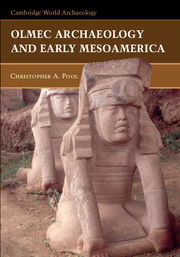41 results
Psychiatrists’ attitudes to professional boundaries concerning spirituality and religion: mixed-methods study
-
- Journal:
- BJPsych Bulletin , FirstView
- Published online by Cambridge University Press:
- 17 August 2023, pp. 1-5
-
- Article
-
- You have access
- Open access
- HTML
- Export citation
FebriDx host response point-of-care testing improves patient triage for coronavirus disease 2019 (COVID-19) in the emergency department – ADDENDUM
-
- Journal:
- Infection Control & Hospital Epidemiology / Volume 43 / Issue 8 / August 2022
- Published online by Cambridge University Press:
- 11 April 2022, p. 1099
- Print publication:
- August 2022
-
- Article
-
- You have access
- Open access
- HTML
- Export citation
FebriDx host response point-of-care testing improves patient triage for coronavirus disease 2019 (COVID-19) in the emergency department
- Part of
-
- Journal:
- Infection Control & Hospital Epidemiology / Volume 43 / Issue 8 / August 2022
- Published online by Cambridge University Press:
- 31 January 2022, pp. 979-986
- Print publication:
- August 2022
-
- Article
-
- You have access
- Open access
- HTML
- Export citation
Chapter Three - Early Urbanization in the Formative Gulf Lowlands, Mexico
-
-
- Book:
- Early Mesoamerican Cities
- Published online:
- 23 December 2021
- Print publication:
- 06 January 2022, pp 50-72
-
- Chapter
- Export citation
The Environs of Tres Zapotes as the Find-Spot of the Tuxtla Statuette
-
- Journal:
- Latin American Antiquity / Volume 31 / Issue 4 / December 2020
- Published online by Cambridge University Press:
- 11 December 2020, pp. 747-764
- Print publication:
- December 2020
-
- Article
- Export citation
Psychiatrists, spirituality and religion
-
- Journal:
- The British Journal of Psychiatry / Volume 214 / Issue 4 / April 2019
- Published online by Cambridge University Press:
- 22 March 2019, pp. 181-182
- Print publication:
- April 2019
-
- Article
-
- You have access
- HTML
- Export citation
TRANSISTHMIAN TIES: EPI-OLMEC AND IZAPAN INTERACTION
-
- Journal:
- Ancient Mesoamerica / Volume 29 / Issue 2 / Fall 2018
- Published online by Cambridge University Press:
- 04 January 2019, pp. 413-437
- Print publication:
- Fall 2018
-
- Article
- Export citation
Killing Civilization: A Reassessment of Early Urbanism and Its Consequences. JUSTIN JENNINGS . 2016. University of New Mexico Press, Albuquerque. 374 pp. 30 halftones, 11 maps, 4 charts. $75.00 (hardback), ISBN 978-0-8263-5660-4.
-
- Journal:
- American Antiquity / Volume 82 / Issue 3 / July 2017
- Published online by Cambridge University Press:
- 22 May 2017, pp. 621-622
- Print publication:
- July 2017
-
- Article
- Export citation
Chapter Two - Defining Early Olmec Style Pottery
-
-
- Book:
- The Early Olmec and Mesoamerica
- Published online:
- 28 April 2017
- Print publication:
- 21 March 2017, pp 37-64
-
- Chapter
- Export citation
Chapter Four - An Early Olmec Manifestation in Western Olman
-
-
- Book:
- The Early Olmec and Mesoamerica
- Published online:
- 28 April 2017
- Print publication:
- 21 March 2017, pp 89-118
-
- Chapter
- Export citation
Mapping the Tres Zapotes Polity: The Effectiveness of Lidar in Tropical Alluvial Settings
-
- Journal:
- Advances in Archaeological Practice / Volume 4 / Issue 3 / August 2016
- Published online by Cambridge University Press:
- 16 January 2017, pp. 301-313
-
- Article
- Export citation
FORMATIVE OBSIDIAN PROCUREMENT AT TRES ZAPOTES, VERACRUZ, MEXICO: IMPLICATIONS FOR OLMEC AND EPI-OLMEC POLITICAL ECONOMY
-
- Journal:
- Ancient Mesoamerica / Volume 25 / Issue 1 / Spring 2014
- Published online by Cambridge University Press:
- 07 August 2014, pp. 271-293
- Print publication:
- Spring 2014
-
- Article
- Export citation
Holistic psychiatry
-
- Journal:
- The Psychiatrist / Volume 36 / Issue 6 / June 2012
- Published online by Cambridge University Press:
- 02 January 2018, pp. 235-236
- Print publication:
- June 2012
-
- Article
-
- You have access
- Open access
- HTML
- Export citation
Contributors
-
-
- Book:
- Clinical Trials in Neurology
- Published online:
- 05 May 2012
- Print publication:
- 12 April 2012, pp ix-xii
-
- Chapter
- Export citation
Praying with a patient constitutes a breach of professional boundaries in psychiatric practice
-
- Journal:
- The British Journal of Psychiatry / Volume 199 / Issue 2 / August 2011
- Published online by Cambridge University Press:
- 02 January 2018, pp. 94-98
- Print publication:
- August 2011
-
- Article
-
- You have access
- HTML
- Export citation
THE EARLY HORIZON AT TRES ZAPOTES: IMPLICATIONS FOR OLMEC INTERACTION
-
- Journal:
- Ancient Mesoamerica / Volume 21 / Issue 1 / Spring 2010
- Published online by Cambridge University Press:
- 22 September 2010, pp. 95-105
- Print publication:
- Spring 2010
-
- Article
- Export citation
ASKING MORE AND BETTER QUESTIONS: OLMEC ARCHAEOLOGY FOR THE NEXT KATUN
-
- Journal:
- Ancient Mesoamerica / Volume 20 / Issue 2 / Fall 2009
- Published online by Cambridge University Press:
- 01 April 2010, pp. 241-252
- Print publication:
- Fall 2009
-
- Article
- Export citation

Olmec Archaeology and Early Mesoamerica
-
- Published online:
- 05 June 2012
- Print publication:
- 26 February 2007
1 - Introduction
-
-
- Book:
- Olmec Archaeology and Early Mesoamerica
- Published online:
- 05 June 2012
- Print publication:
- 26 February 2007, pp 1-33
-
- Chapter
- Export citation
List of Illustrations
-
- Book:
- Olmec Archaeology and Early Mesoamerica
- Published online:
- 05 June 2012
- Print publication:
- 26 February 2007, pp xi-xiv
-
- Chapter
- Export citation



